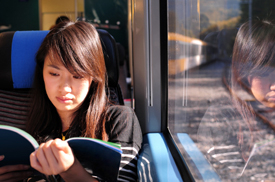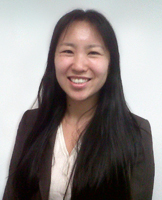Asian students face parental pressures, cultural taboos

You don’t air your problems in public. You don’t go to college to make friends or find a significant other – you go to pursue a career, ideally in the sciences, medicine, law, or business.You don’t seek help for depression, anxiety, or other emotional and mental-health issues.
Above all, you don’t bring shame to the family.
Ji Hyun Lee, the Korean-American director of Rutgers’ Asian American Cultural Center, has encountered all the taboos – spoken and unspoken – that fill the Asian-American landscape. And she’s all too aware that her students have as well.
During periodic workshops at the Livingston Campus-based center, she opens the floor to students grappling with the challenges of living with a foot in two cultures.
The center, founded in 2000, works with more than 50 student associations to showcase the contributions of Asians and Asian Americans, both on and off campus. Its offerings include exhibits, performances, lectures, and seminars.
'The goal of the workshops is to break the chain and make the taboo not so taboo.' – Ji Hyun Lee, director, Asian American Cultural Center at Rutgers
The center also acts as an informal home away from home for Asian-American students, who comprise an estimated 25 percent of the Rutgers-New Brunswick student body.
“The goal of the workshops is to break the chain and make the taboo not so taboo. We try to get the word out that students can come here to talk about anything that’s bothering them,” Lee says.
The national suicide rates are disproportionately high among Asian Americans, particularly women between 15 and 24 and the elderly. And yet, Lee says, this is a population that is least likely to seek out mental-health resources – a byproduct of an ethos that views talking about your problems as a sign of weakness.

The sessions regularly draw about 75 undergraduate and graduate students, Lee says. They concentrate on issues common on any college campus – sexuality, academic pressures, relationships, gambling, drugs and alcohol – but with the added overlay of long-ingrained cultural mores.
“These are topics that are already difficult to discuss, regardless of one’s race and ethnicity. But when you add the Asian American identity to the mix, it definitely complicates the conversation,” says Lee, who has been at Rutgers since 2001 and has directed the center since 2006.
Take the matter of grades.
“Education is an extremely strong value in the community,” she notes. “When their children are still at a very young age, many Asian parents will do whatever it takes to ensure that their children get the best possible education: after-school tutors, the most exclusive private schools. It is regularly communicated, whether spoken or unspoken, that the children have to repay that sacrifice with high-achieving performance.”
The pressures come early and often, and for many students it is felt most in the area of career choice, according to Lee. Telling your father and mother you want to follow a path other than the one they’ve charted – the arts, say, rather than engineering – can carry the threat of strong familial backlash, Lee notes.
“It’s very common for us to have students tell us that they’re pursuing a particular degree because it’s what their parents want. What that creates for our Asian American students is an internal struggle – the American ideal of individualism over the Asian ideal of putting the family unit first.”
Lee, who came to the United States from Korea when she was 1, has seen the dynamic up close.
She had every intention of pursuing a career in the medical field as her parents wished; but she realized that being a doctor wasn’t what she envisioned for her life.
Late in her college career she had a conversation with her parents, albeit a difficult one, and immediately felt relieved. “I faced their disappointment, but I wasn’t disowned and life continued,” Lee says.
Slowly, slowly, the zeitgeist is changing, she believes, as generations pass and émigré families become more immersed in American ways.
She doesn’t know if the taboos will ever go away completely. “But I do sense that as we become a more multicultural nation, perhaps some of the issues will not be as stigmatized,” Lee predicts. “The important thing is that we continue to look for ways in which we can de-stigmatize these topics, and also encourage the community to break the silence.”